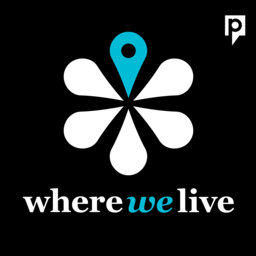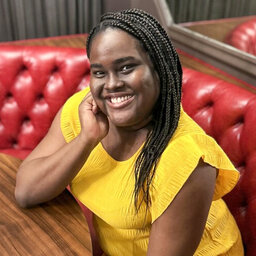Davarian L. Baldwin spotlights the "Shadow of the Ivory Tower"
As non-profit, tax-exempt institutions, colleges and universities are often seen as a source of public good. For example, a recent New York Times Magazine article celebrated a bustling New Haven arts scene that has arisen "both because of and despite Yale."
Author and historian Davarian L. Baldwin describes a "public good paradox," calling for a "broad examination of higher education's growing for-profit influence on our cities."
This hour, the Trinity College professor joins guest host John Henry Smith to discuss his latest book, In the Shadow of the Ivory Tower: How Universities Are Plundering Our Cities. He touches on Yale University in New Haven, as well as his own employer, noting its "ambivalent relationship with its location" in Hartford.
Baldwin writes that Yale is one "extreme" example of how "colleges and universities come to significantly dictate the terms of urban living, from a city’s housing costs and wage ceilings to its health-care standards and even policing practices."
Baldwin discusses his work organizing around various institutions of higher learning through the Smart Cities Lab he founded and directs at Trinity College.
He tells John Henry Smith, "We're talking about suppressed wages of faculty, service workers, graduate students. We're talking about tax exemptions; we're talking about unaccountable policing; we're talking about questionable health care practices. So for me, higher education, the notion of the 'ivory tower,' is dead. Some of the major struggles over the future of our democracy are being played out in concentrated form on our America's campuses."
We also hear from Eddie Camp, an organizer and research director with UNITE HERE Local 34, who has worked with community organization New Haven Rising to push for Yale to "pay its fair share." He discusses Yale's recent commitment to increase its voluntary contribution to the City of New Haven.
Camp helped to research segregated development in 2020, finding "striking" overlaps between mortgage rates, life expectancy, unemployment, foreclosures and COVID-19 rates in New Haven. Find out more about that research and campaign.
GUESTS:
- Davarian L. Baldwin: Author and historian Davarian L. Baldwin, Paul E. Raether Distinguished Professor of American Studies, Trinity College; Founding Director, Smart Cities Research Lab; Author, In the Shadow of the Ivory Tower: How Universities are Plundering Our Cities
- Eddie Camp: Research Director, UNITE HERE Local 34
In 1 playlist(s)
Where We Live
Produced by Connecticut Public, 'Where We Live' puts Connecticut in context. Host Catherine Shen bri…Social links
Follow podcast
Recent clips

Black authors on the spectrum of diversity in children's literature
48:59

Author Kamilah Cole explores Hartford and Jamaican-American experience in latest novel
48:59

Author Melissa Febos explores sex, celibacy and healing in 'The Dry Season'
48:59
 Where We Live
Where We Live